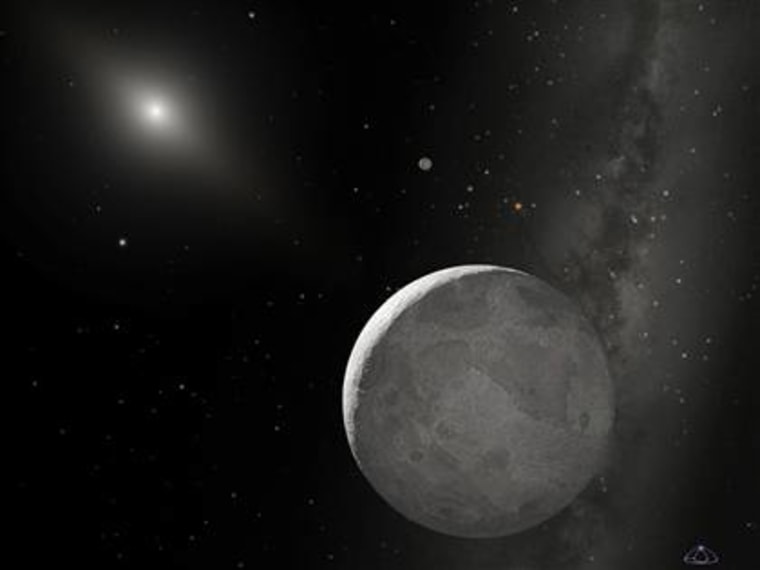Scientists have to agree on a universal definition for what qualifies as a planet, the head of a global astronomy organization said Tuesday, as scientists debated the future designation of Pluto.
"People have to be able to agree on a terminology that's used to describe things in the universe," Ronald D. Ekers, president of the International Astronomical Union, told reporters in Prague. "We don't want an American version, a European version and a Japanese version."
Ekers made his comments on the sidelines of a meeting of nearly 2,500 astronomers from 75 countries. During the 12-day conference, which began Monday, scientists were expected to work on finding an internationally accepted definition of what constitutes a planet, and decide whether Pluto should keep its status. Scientists were also expected to consider whether to bring a new planet, nicknamed Xena, into the fold, possibly along with dozens more.
"This particular definition, the definition of a planet, is one that of course has huge public interest," Ekers said.
For decades, most people have defined our solar system as having nine planets, though some have questioned whether Pluto — smaller than Earth's moon — belonged in that category. The discovery last year of an object larger and farther away than Pluto has thrown cosmic definitions into chaos.
Until now, there have been no definitive criteria, with most simply describing a planet as a large, round object that orbits the sun. Scientists will work on establishing criteria for planet status — including the object's mass, orbit and distance from the sun — and then whether Pluto and Xena meet the definition.
An international panel that has been considering the question for months is due to release its recommendation Wednesday morning.
Depending on the outcome of the IAU meeting, the solar system could be expanded to include 23, 39 or even 53 planets. If the newly found Xena qualifies as a planet, some argue, so should several other bodies found in the outer reaches of the solar system. Others say, however, that if Xena is ruled out as a planet, Pluto should be as well.
A third group of scientists has suggested that planets be classified into categories based on composition, similar to the way stars and galaxies are classified. Jupiter could be labeled a "gas giant planet," while Pluto and Xena could be "ice dwarf planets."
Also on Tuesday, John Mather and the Cosmic Background Explorer team were awarded the prestigious 2006 Gruber Cosmology Prize for their studies confirming that our universe was born in a hot Big Bang.
The instruments aboard NASA's Cosmic Background Explorer, launched in 1989, looked back over 13 billion years to the early universe, showing that the young universe was hot, dense and almost uniform. The instruments showed that the universe contained weak fluctuations that grew into the stars and galaxies, and that these fluctuations were the consequence of a hot Big Bang.
Mather receives half the $250,000 prize. The rest will be shared by 18 other representatives of the team.
